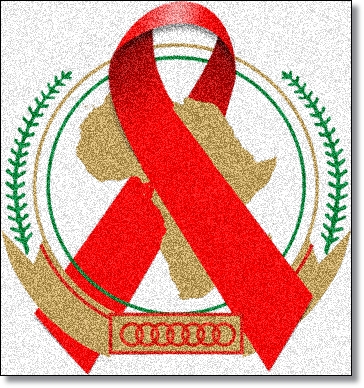HIV/Aids in Africa: Overwhelming Needs and Odds

 |
2010, according to the UNAIDS, 1.2 million were Africans.
Nine of every ten newborns that contract HIV from their mothers during pregnancy and childbirth are African children. Nine of every ten AIDS orphans live in Africa. Nearly 60 percent of all individuals living with HIV/AIDS in Africa are women. African women account for more than 70 percent of all women living with HIV/AIDS around the world.
None of these grim proportions of individuals living with HIV and dying of AIDS around the world as it relates to Africa have changed in the last ten years. Since 1998, as noted by UNAIDS, at least one million Africans die every year of AIDS in the continent. Most of these deaths are men and women in their prime economic earning years. For each death from AIDS, children, spouses, brothers, sisters, relatives and dependents face uncertain future, especially in impoverished parts of Africa. A continent that had lost at least one million individuals every year for the last 13 years to a clinical problem that is now largely manageable by available medicines in the richer parts of the world should be on high alert and on war footing.
In the last decade, steady gains have been made in the fight against AIDS in Africa. For example, between 2009 and 2010, the uptake of antiretroviral therapy increased by 20 percent in Africa. Africans, African governments and the international community deserve commendation for gains made in HIV/AIDS remedial efforts. Lives are being saved, families given temporary reprieve by steady gains made. However, these gains remain modest and tenuous in view of overwhelming needs and odds. Gains remain modest if put in proper perspectives. Southern Africa in 2010 alone accounted for almost 50 percent of all global 2010 AIDS deaths. South Africa, the economic giant of Africa continues to face a formidable foe in HIV/AIDS: At least 5.6 million South Africans live with HIV/AIDS, according to the UNAIDS. Gains remain tenuous as funding for HIV/AIDS remedial efforts in Africa is not immune from shocks associated with global financial meltdowns and shift in domestic policy priorities in donor nations.
As long as millions are at risk of HIV and dying or dead of AIDS, the talk of an AIDS free generation in Africa is premature. Today, despite the availability of life saving medicines, AIDS remains a deaths sentence in most parts of Africa. For the nearly 23 million individuals living with HIV/AIDS in Africa, the clock of untimely death is already ticking. For most of these individuals, steady but modest gains made in HIV/AIDS remedial efforts may be too little, too late.
Discussion about an AIDS- free generation in Africa will become serious if specific gains are made on the following issues:
A. A robust, comprehensive, continent wide effort to provide available antiretroviral therapy to all Africans that clinically qualify. This effort requires two critical steps. First, mobilize financial, technical and logistics public, private and foundation resources worldwide to put lifesaving available antiretroviral medicine and other public health goods in the hands of all individuals living with HIV/AIDS that qualify worldwide, including those living in Africa. Second, an issue that is not seriously on the radar screen of global development and health policy making circles, an implementation of a global effort to keep individuals already on antiretroviral therapy on lifetime care. What happens to millions of individuals on lifesaving medicines in poor countries if the global economic downturn continues to deteriorate?;
B. A revamp of community-based health systems in Africa with emphasis shifted to primary health care services, outreach programs and community-oriented information, education and communication campaigns against HIV transmission targeting high risk populations;
C. A serious conversation and specific continental action on the plight of African women and HIV/AIDS. The key is taking action against risk factors that put women disproportionately at risk of HIV transmission. No taboo should be too sacred in this regard;
D: A re-invigoration of the current global effort to produce and deploy effective HIV vaccines around the world. This effort requires closer North-South collaboration;
E. A serious drive to mitigate the impact of chronic poverty in the continent and to create opportunities for poor families to become economically self-reliant. This effort alone is more than a generation worth of work in Africa where endemic poverty is entrenched;
F. The need for Africans to take over the leadership of the fight against AIDS in the continent. One of the most important benefits of an African led response is the need for quick decisions on capacity strengthening and scaling up of promising programs and initiatives. Another potential benefit is the need for African governments and leadership to find lasting solutions to a better coordinated and harmonized international aid in the continent.
We all hope that one day a serious discussion of an AIDS free Africa will be routine as far fewer Africans die of AIDS and HIV transmission become drastically reduced. Today, such a discussion is premature in the midst of overwhelming needs and odds. A lot of work lies ahead. Luckily, the fight against HIV/AIDS is at stage where policy makers, scientists, advocates and families living with or affected by HIV/AIDS are better informed on what works and what does not. Furthermore, although financial support may show signs of strain, the global solidarity to wage a relentless war against HIV/AIDS is not in doubt.
By Dr. Chinua Akukwe
The author cakukwe@att.net is former Chairman of the Technical Board of the Africa Center for Health and Human Security, George Washington University, Washington, DC.
